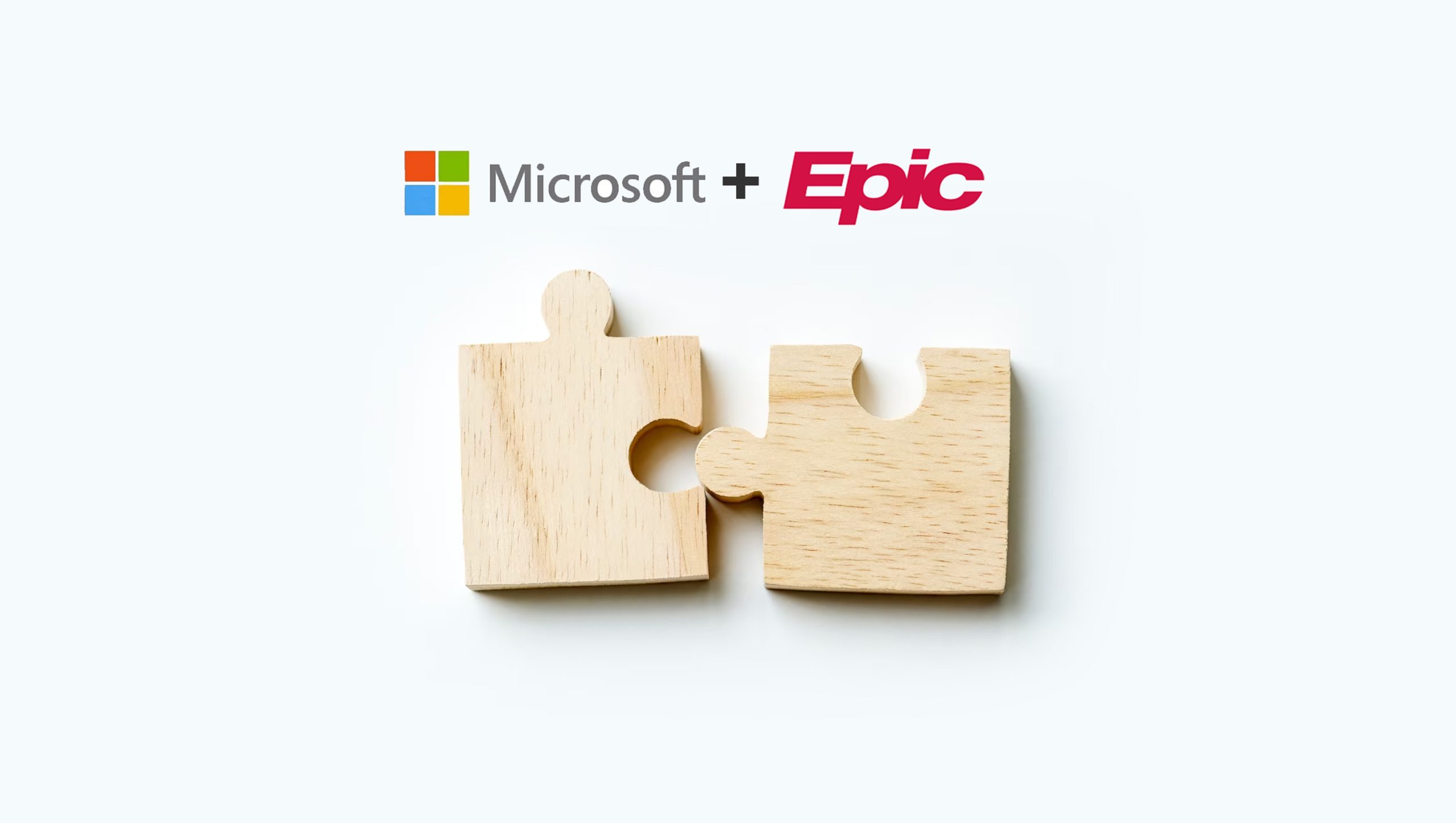
Health tech leaders Microsoft and Epic have unveiled a suite of co-piloted AI tools within the Epic EHR ecosystem. The collaboration integrates Microsoft’s cloud and AI capabilities with Epic’s clinical workflows, offering conversational, ambient, and generative AI solutions. These innovations, presented at Epic’s Users Group Meeting, address workforce burnout, documentation efficiency, and revenue cycle management. Cerner has also introduced the Suki ambient voice AI to streamline documentation, while eClinicalWorks partnered with Ero Health and HealthTalk A.I. to enhance patient engagement capabilities, facilitating better access and care gap closure.
As summer draws to a close, major players in the healthcare technology sector have introduced a flurry of artificial intelligence tools aimed at enhancing electronic health record functionalities. These tools encompass various aspects, ranging from clinician documentation to streamlining claims office operations.
Expanding Cloud-Enhanced AI Integrations: Microsoft and Epic
Microsoft and Epic have joined forces, combining Microsoft’s cloud and AI technologies with Epic’s clinical workflows and insights. The collaboration has yielded a range of conversational, ambient, and generative AI technologies that are now flourishing across the Epic electronic health record ecosystem.
Eric Boyd, Corporate Vice President of Microsoft’s AI platform, emphasized the significance of this partnership. In a recent blog post, he described Epic’s integration of Microsoft’s technology and infrastructure as an unprecedented endeavor in terms of both scale and speed. The aim is to bring generative AI to the healthcare sector rapidly and responsibly, in collaboration with healthcare providers, to address ongoing challenges in healthcare.
The collaborative efforts have resulted in various “copilot solutions” available through the Azure OpenAI Service and Nuance DAX. These solutions tackle issues such as workforce burnout and staffing shortages. Many of these new capabilities are being showcased at Epic’s annual Users Group Meeting held at the company’s Wisconsin campus.
One notable addition to the Epic ecosystem is the integration of DAX Express AI technology within the native Epic Hyperdrive platform and Haiku mobile application. This integration introduces enhanced capabilities for healthcare professionals.
On the revenue cycle management front, Epic is implementing suggestions based on clinical documentation within the EHR. This move aims to enhance coding accuracy and streamline billing processes, with the recognition that generative AI has the potential to significantly improve efficiency in revenue cycle management.
Azure-powered search tools are also being leveraged by a select group of SlicerDicer visualization tool users. These tools enable the incorporation of real-world data to address gaps in clinical evidence, particularly in the study of rare diseases.
Incorporating Suki Ambient Voice AI: Cerner’s Initiative
Cerner is introducing the Suki ambient voice AI assistant to its ecosystem. This addition enhances documentation and workflow flexibility by allowing users to directly reference key patient chart data within Suki through a bi-directional sync. Moreover, Cerner EHR users gain the ability to view previously signed notes and replicate them in Suki. The generated documentation seamlessly integrates back and automatically updates relevant sections.
Suki utilizes natural language processing to accelerate clinical documentation speed by an impressive 72%, as claimed by the company. This technology alleviates the administrative burden on clinicians, aiming to enhance their experience and reduce burnout.
The implementation of Suki AI has been successful at Franciscan Missionaries of Our Lady Health System, a healthcare group serving patients across Louisiana and Mississippi. This initiative is part of a broader suite of solutions aimed at improving the provider experience and addressing clinician burnout.
Leveraging eClinicalWorks AI for Enhanced Patient Access
A collaboration between Ero Health and HealthTalk A.I. has enabled eClinicalWorks to offer advanced patient engagement capabilities. Ero Health’s service and hosting applications, combined with HealthTalk A.I.’s patient engagement platform, serve to enhance patient access and close care gaps effectively.
This collaboration brings several benefits to healthcare providers, including:
– Automated engagement across languages.
– Real-time scheduling via secure SMS and web chat.
– Digital intake and e-signing capabilities.
– Efficient management of no-shows (confirmations, cancellations, and rescheduling).
– Follow-up and transitional care management.
The success of AI-driven patient outreach and scheduling capabilities was highlighted at an eClinicalWorks health summit by Urban Health Plan. The organization was able to significantly reduce patient no-show rates in just three months using AI technology.
As the healthcare tech landscape evolves, these collaborations and innovations underscore the potential of AI to enhance various aspects of healthcare, from documentation to patient engagement and beyond.

